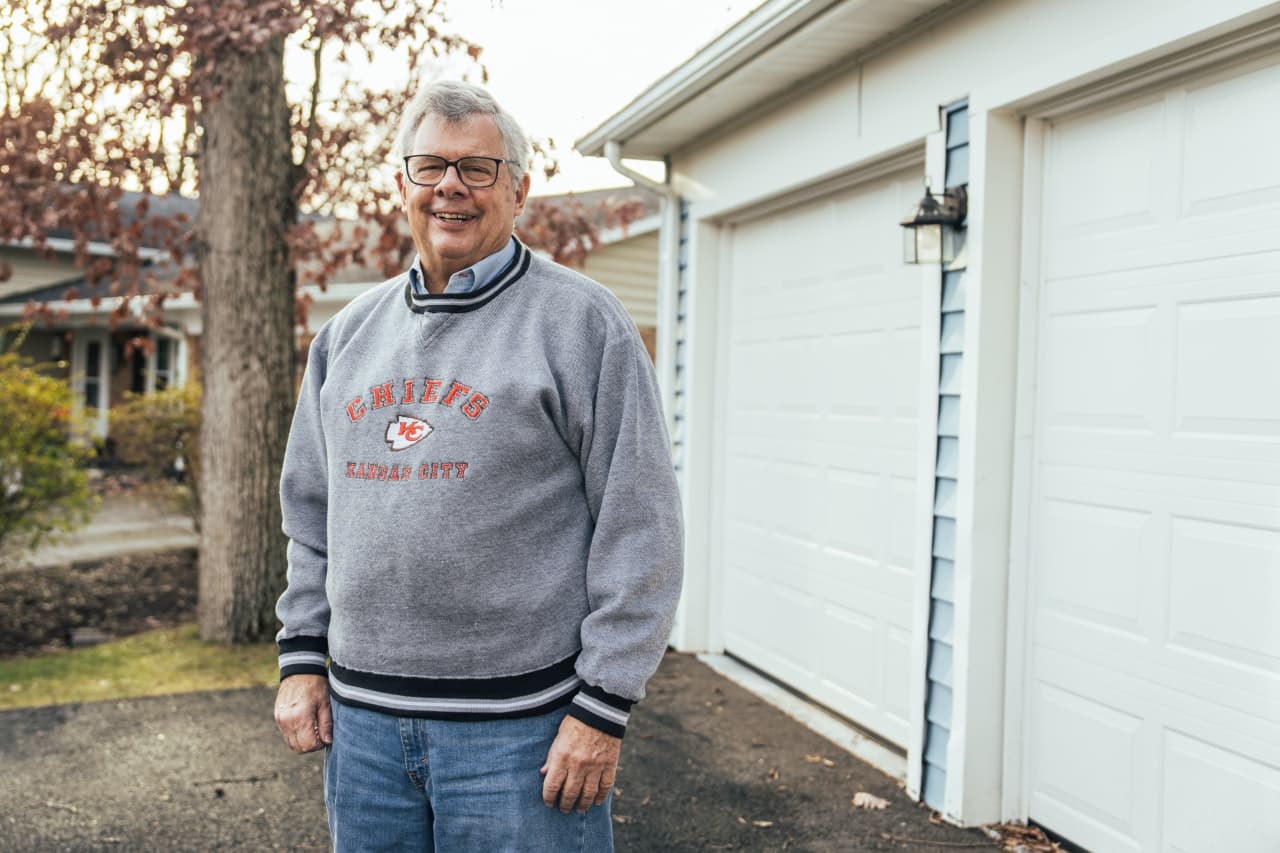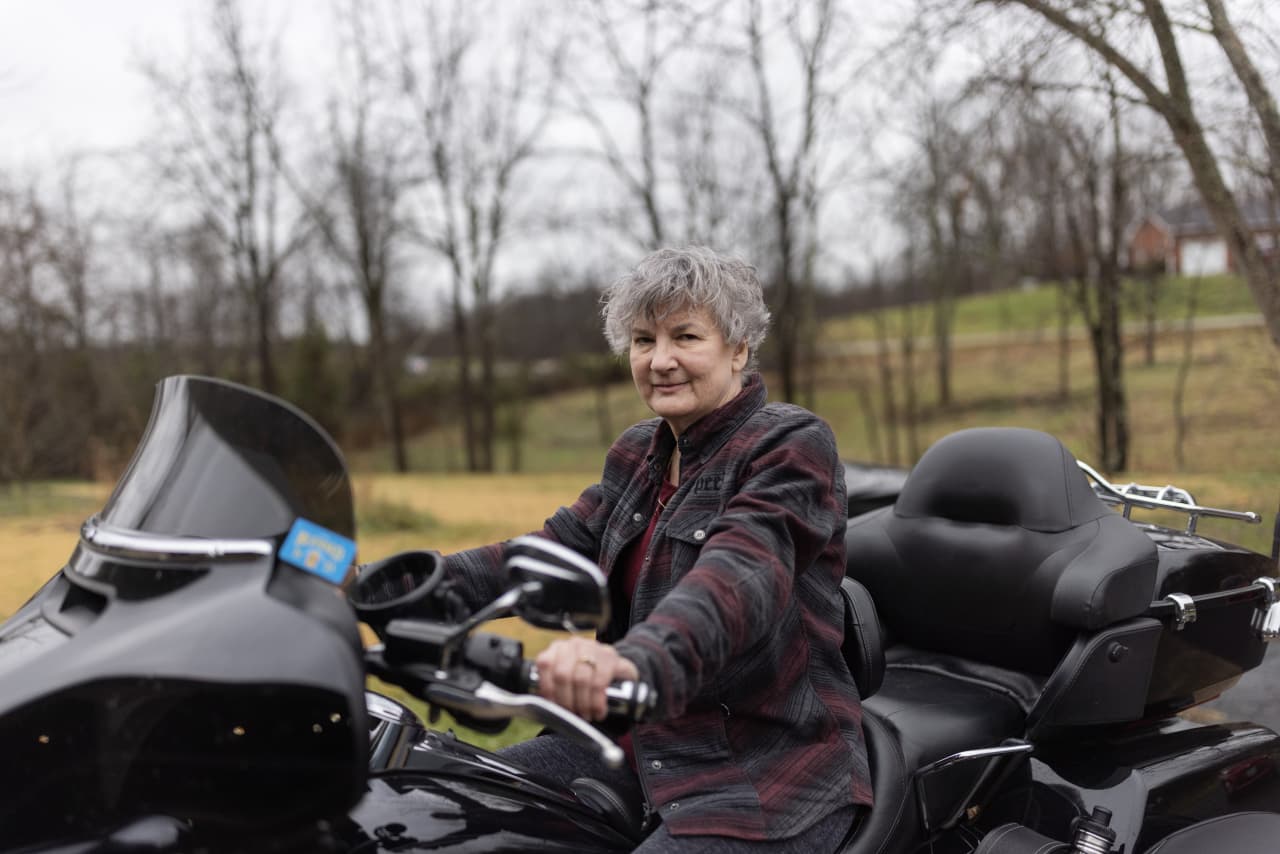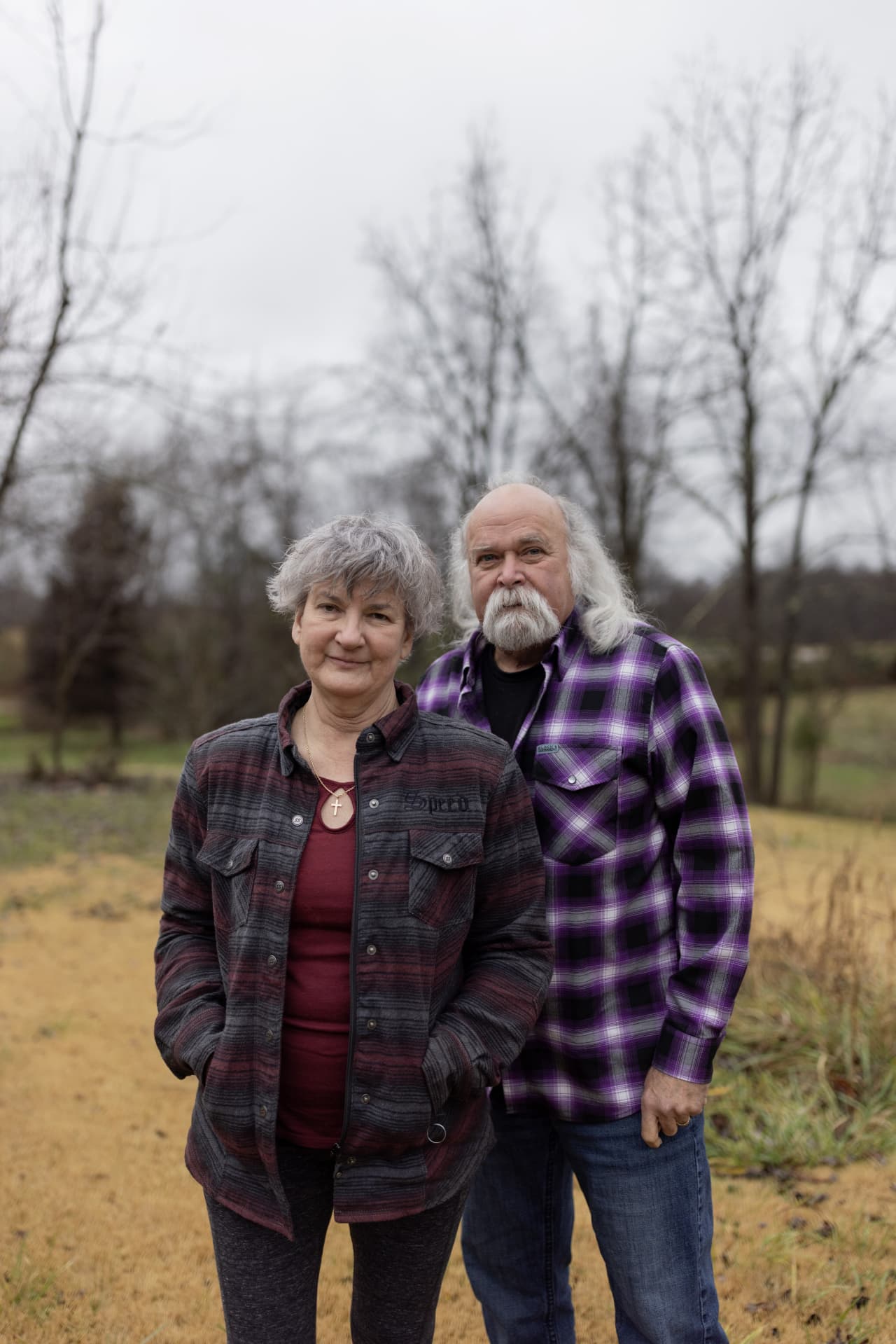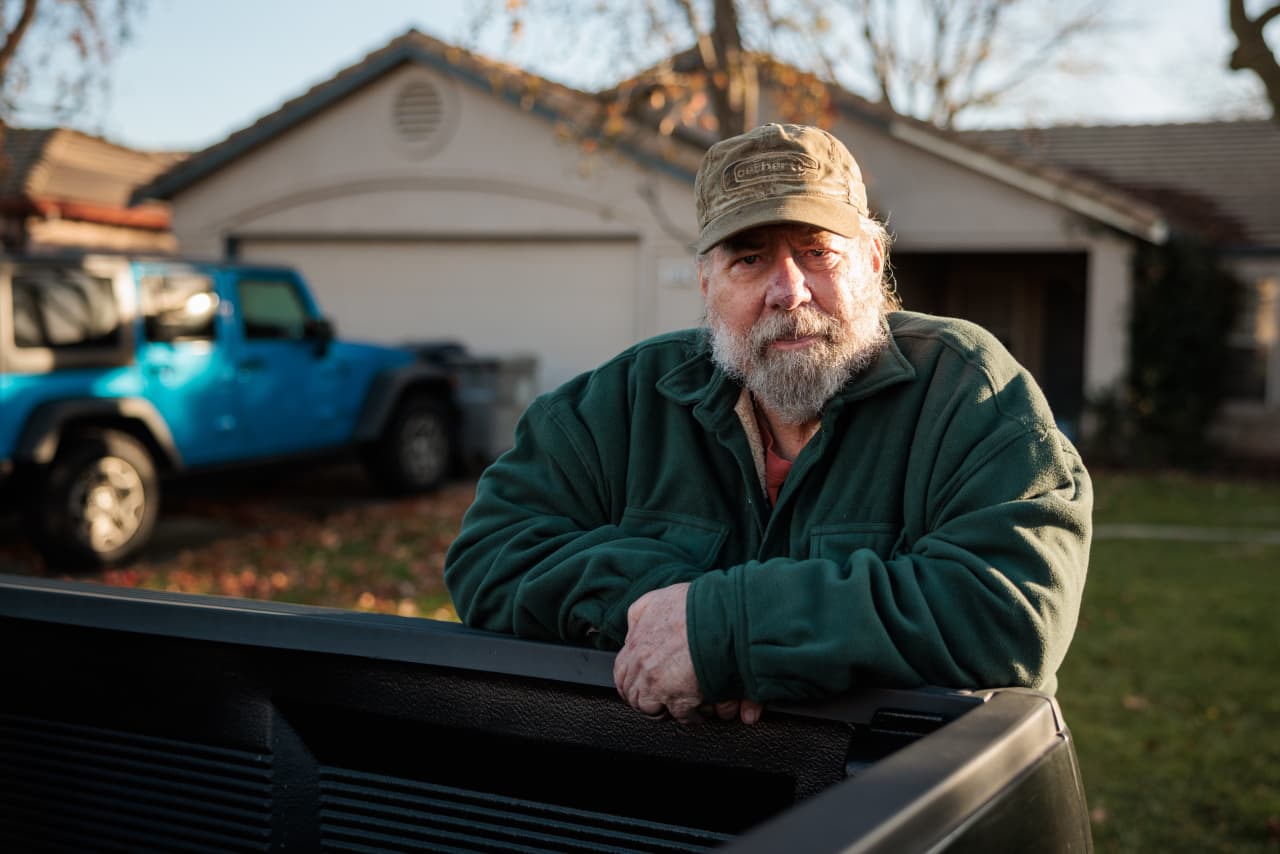The
pursuit of happiness
Retirement can be much smoother with a pension.
Retirees receiving steady salaries express greater contentment compared to those who do not.
rely on 401(k)s
To augment their Social Security benefits, research indicates. Those with pensions find the assurance of a steady income throughout life to be a significant source of contentment and joy.
Although 401(k)s have the potential to create greater riches, retirees mention that managing various investment, taxation, and withdrawal tactics can increase their anxiety precisely when they aim to reduce it.
Pensions come with certain disadvantages. Accumulating a substantial monthly benefit can be challenging unless you remain employed by the same company for many years, and these incomes often aren’t revised to account for inflation, according to Gal Wettstein, an economist from Boston College’s Center for Retirement Research.
employers go bankrupt
He mentioned that benefits could potentially be reduced.
However, as Oscar Wilde put it, “It is better to have a secure source of income than to be captivating.” People who enjoy financial stability through their pensions—one out of every seven private-sector employees alongside most public servants, according to the U.S. Bureau of Labor Statistics—are inclined to concur with this viewpoint.
Here, four retirees claim that the sacrifices are worthwhile for the sense of security they gain.

Rick Larson’s two retirement benefits easily meet all of his current yearly costs.
“The responsibility of managing my retirement savings for life doesn’t fall on me,” explained the retired Air Force colonel, adding that his friends face this ongoing challenge.”
Every month, he earns an untaxed amount of $8,100 from his military pension and $800 from his private-sector pension. The military pension adjusts for inflation, but the private one does not. Additionally, he gets $4,100 before taxes each month via Social Security, with extra healthcare support provided through the military’s plan alongside Medicare.
Larson allocates approximately $6,000 per month towards ongoing costs and sets aside an additional $7,000 for trips. His financial obligations include two mortgages: one costing him $2,500 monthly for his residence in Reston, Virginia, and another of $1,200 each month for a vacation property in Myrtle Beach, South Carolina.
When Larson was 77 years old at the time of joining the military during the Vietnam War, he had no intention of making it his lifelong profession. Instead of waiting to be drafted, he enlisted in the Air Force, hoping that this way he could have some say over where they assigned him.
“It felt like flying would be preferable to lugging around an M16 rifle throughout Southeast Asia,” stated Larson, who was fortunately never sent to deploy in Vietnam.

After spending several years in the military, Larson thought about transitioning to the private sector. However, the Air Force presented him with an opportunity to work in Japan instead. His wife, Karla, agreed enthusiastically and even started learning Japanese.
The pair relocated 17 times throughout their journey. In 1991, during the Iraq war, they found themselves in Cairo, with Karla imparting her knowledge there. According to Larson, he worked out arrangements for U.S. aircraft, which refueled military planes, to operate from an Egyptian Air Force installation.
In the year 2000, he stepped down from his position as a colonel and transitioned into consultancy for a company specializing in defense contracts, focusing on initiatives related to intelligence.
Upon their retirement in 2014, the pair embarked on journeys to places such as Australia and New Zealand. In 2022, Karla passed away due to COVID-related issues after visiting Antarctica.
Larson continues to travel extensively; he most recently went to Florence, Italy, where his granddaughter was pursuing her studies. He is looking forward to embarking on an around-the-world cruise and enjoys watching Kansas City Royals games at stadiums across the nation.
When at home, Larson joins an 8 A.M. prayer session via Zoom prior to going to the gym. He frequently runs into his two daughters along with their respective families.
He only began contributing to a 401(k) plan once he exited the military at age 53. Since his military pension was sufficient for covering his daily costs, he opted to contribute the yearly pre-tax limit and also set aside post-tax funds, which were then moved into a Roth account. Currently, he boasts savings of over $1 million.
Larson gives a portion of his mandatory withdrawal to his church and intends to pass along the remainder of his savings to his grandchildren.
“They’re just beginning their lives and have to cope with elevated mortgage rates and employment lacking pension plans,” he stated.

At age 55, Patricia Pekar decided to retire when she understood that her pension would cover 67% of her salary.
Emancipated from her work responsibilities, she dedicates more of her time to volunteer at her church or rides her motorcycle alongside her spouse, cruising freely across the vast highways.
I enjoy being in wide-open spaces,” stated Pekar, aged 67. “The solitude appeals to me, as does listening to the surrounding noises.
Pekar secured her retirement benefits through three decades of service—as both a clerk and a lawyer—for local and municipal administrations in Ohio. Her pension started building up during her time at university when she worked for Dennis Kucinich, Cleveland’s ex-mayor who went on to be elected into Congress.
Following the completion of her legal education, she began working for Scioto County in southern Ohio, the place where she resides alongside her spouse, Wyatt Bates. In this role, she presided over child support proceedings and implemented federal guidelines that resulted in increased financial contributions from absent parents to numerous single mothers.

Pekar and Bates, who are both 67 years old, currently receive approximately $7,780 per month before taxes. This income includes $5,400 from her inflation-adjusted pension, $750 from her part-time job as a bookkeeper, and $1,635 from his Social Security benefits.
Pension promotes fiscal restraint, according to Pekar, who monitors her expenditures closely. Her monthly costs consist of $150 for cell phone and internet services, $370 for heating and power, and $400 for food purchases.
Bates makes an additional $20,000 annually from his real estate work, covering the pair’s traveling expenses and occasional costs like their newly bought second-hand Jeep.
Pekar hasn’t claimed Social Security benefits yet. She is eligible for approximately $850 per month from her work in the private sector. Initially, she was set to receive a reduced benefit; however, on Saturday, the Senate passed a measure that repeals this reduction.
cutback in Social Security payments
For individuals who have public-sector pensions but do not participate in Social Security, President Biden is anticipated to approve the legislation.
The pair has $382,000 saved up in their IRAs and brokerage accounts. Each year they take out $4,000 for long-term care insurance premiums but aim to leave the remainder untouched.
They embark on extensive journeys aboard their Harley-Davidsons, heading to places like the Great Smoky Mountains. In the coming year, they intend to go on two cruise vacations and also participate in a spiritual journey with their church community to Lourdes, France.
Bates is part of a musical ensemble that plays percussion instruments at various local venues like bars and eateries. Pekar belongs to four female equestrian groups. She mentioned that men are permitted, though they must stay towards the rear when the club goes for rides.
There exists a bond among riders,” she stated. “This sense of fellowship holds a unique importance.

While pursuing his associate degree at a community college, John Priddy was approached by a non-profit utility company that supplies water to over two million residents in central Arizona.
He remained there for the following 43 years.
Priddy’s dedication to the Salt River Project was rewarded in retirement with a monthly pension of around $4,700 post-tax. Towards the end of his career, he accumulated much of his unused vacation and sick days, receiving a one-time payout of approximately $50,000 upon retiring.
Priddy, who is 72 years old, mentioned that he never found the time or felt the necessity for obtaining a bachelor’s degree. He was preoccupied with work and assisting in raising his two children, who are now grown-ups.
“I put in a lot of effort over several years to secure a decent pension, and I’m grateful that everything paid off,” he stated.
Feeling financially secure gave him the courage to explore new opportunities.
At the age of 55, he chose to take up painting. A pastime from many years back has turned into the primary pursuit of his retired life. There’s an art studio within his house where he loves to create paintings of cars. After stepping down at 63, he dedicates a minimum of three hours daily to painting. Additionally, he has held key positions in an arts association based in the Phoenix region.
Priddy has always been diligent about saving money, he mentioned. During his teenage years, his family once came close to becoming homeless. Since that experience, he has strived to save as much as he can and maintain frugal habits, he explained.
Each year, he expends approximately $60,000, of which his largest cost is his mortgage. His house, purchased not long after his separation around two decades back, comes with a mortgage totaling close to $300,000 at an interest rate of about 2.99%. He mentioned having no urgency regarding paying off this debt and declared himself free from any additional financial obligations.
Priddy decided to wait until reaching 66 years of age before claiming his Social Security benefits, receiving approximately $2,600 monthly as a result. Additionally, he has around $850,000 accumulated in an untouched retirement fund that is predominantly allocated into stocks.
Every weekday morning, he rises at 5 a.m., makes his way to the gym for a half-hour exercise session, then returns home to whip up a nutritious meal featuring no fewer than three eggs alongside some protein-packed bread. Most dishes he prepares himself, often inviting fellow gym-goers over for tips and live tutorials on crafting wholesome recipes.
“I’m busier than ever,” stated Priddy.

During his 25-year tenure with the state of California, Ken Thompson wasn’t fond of most positions he held.
However, the 71-year-old achieved what they desired.
“I put in all this work so I could have a pension eventually,” stated Thompson upon retiring at the age of 64.
He earns more each month at home now compared to when he was employed. Thompson receives approximately $5,900 per month from his pension post-taxes, coupled with an additional $2,200 monthly from Social Security. Furthermore, he has accumulated savings worth $110,000, which is allocated across stocks, money-market funds, and certificates of deposit.
Although he hasn’t increased his expenditures, he and his spouse still shell out roughly $3,400 each month, with the bulk of this amount going towards their home loan.
Over the last few years, extra funds remaining at the close of each month were utilized to settle various debts such as those from credit cards and auto loans, or they went towards improving their house. Currently, apart from their mortgage, they have cleared all their obligations. Nowadays, Thompson usually deposits any additional earnings into a savings account.
Initially, when Thompson began his career, he worked for several transportation firms. He dedicated almost ten years to one firm where promises of a future retirement plan were made. However, once the company folded, the pension fund—which likely amounted to just a few thousand dollars—disappeared without a trace, as per his account.
That was when he opted for a career with the government, primarily focusing on information security roles.
He feels secure with his pension, but their monthly grocery costs are eroding that comfort, he mentioned. Prior to the pandemic, he could purchase groceries for both of them for around $150 per week. Currently, though, he spends approximately $300 weekly on groceries. The Thompsons meticulously monitor their expenditures and have reduced luxury items they once indulged in. Rather than purchasing two rib-eye steaks for dinner like they did pre-pandemic, they now share just one steak.
“He mentioned that we are expending more resources but receiving fewer benefits.”
Fighting cancer over the past decade significantly impacted his health, he admitted. Although he is currently free from cancer, he experiences some issues with balancing himself due to his illness. He expressed gratitude that most of his medical expenses not covered by Medicare are primarily taken care of by the state assistance, he mentioned.
He has some restrictions when it comes to physical activities, yet he can manage to walk his dog around the neighborhood several times each week. He finds pleasure in reading and staying informed about current events in both business and politics.
“I’m simply delighted that I no longer have to work,” he stated.
Send the letter to Veronica Dagher.
Veronica.Dagher@wsj.com
and Anne Tergesen at
anne.tergesen@wsj.com